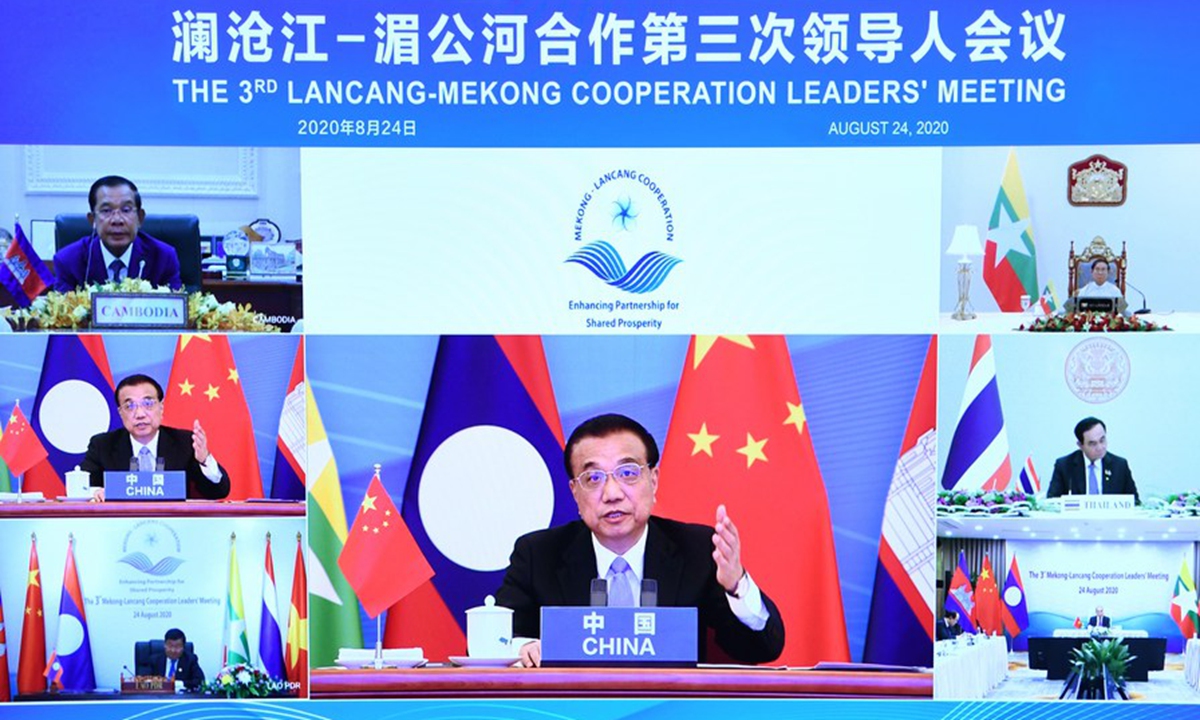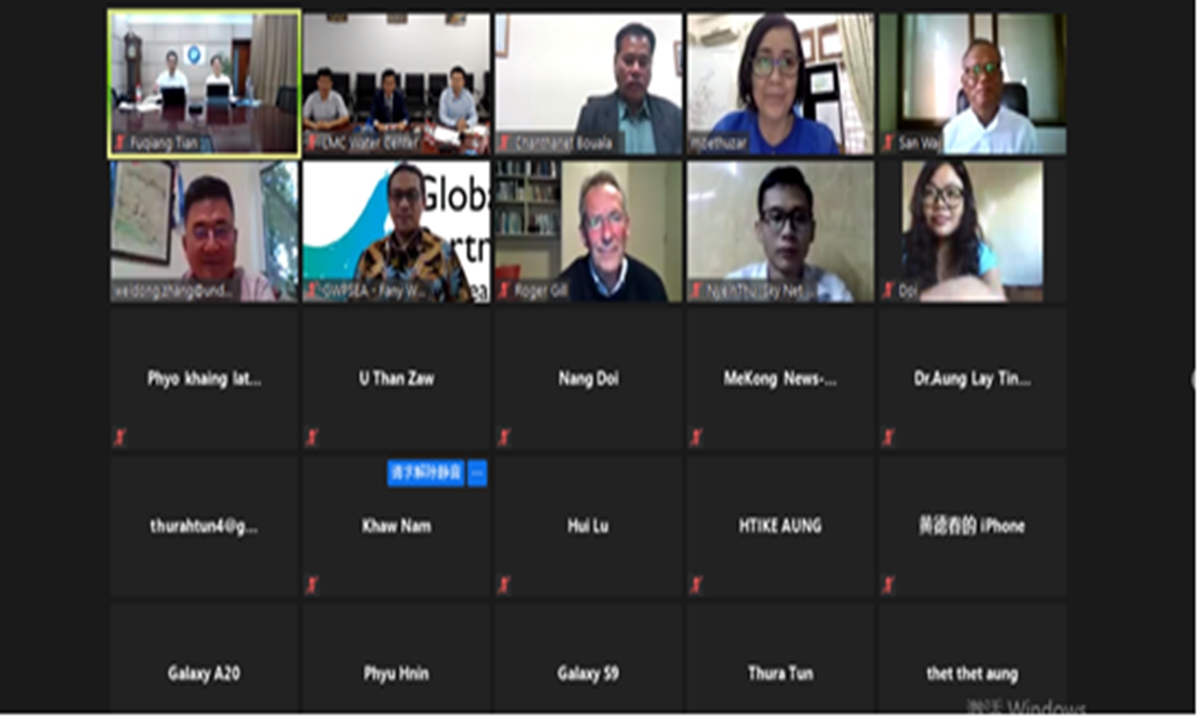International experts call for cooperation in sustainable development of Myanmar water facilities
By Hu Yuwei Source: Global Times Published: 2020/9/23 18:43:40

Chinese Premier Li Keqiang attends the third Lancang-Mekong Cooperation Leaders' Meeting via video link at the Great Hall of the People in Beijing, capital of China, Aug. 24, 2020. (Xinhua/Rao Aimin)
Chinese experts expressed their willingness to contribute to the sustainable development of Myanmar's water facilities at a recent online symposium drawing together more than 30 experts from the Lancang-Mekong countries and international organizations to discuss better resolutions for Myanmar's water facilities. Representatives urged regional cooperation to help solve the water-use crisis.
The event, supported by the Chinese Think Tank for Lancang-Mekong Water Resources Cooperation and organized by Tsinghua University, attracted representatives from international organizations including Roger Gill, president of the International Hydropower Association (IHA), Zhang Weidong, senior expert from the United Nations Development Programme (UNDP) and Fany Wedahuditama, regional coordinator of the Global Water Partnership South East Asia.
It is obvious that insufficient water infrastructure is still a prominent factor constraining the sustainable social and economic development of Myanmar, especially amid the COVID-19 pandemic, and experts have called for greater international efforts to promote sustainable management and utilization of water resources to enhance people's well-being in Myanmar.
Women carry the main part of the burden in terms of gathering water in Myanmar. Improved water supply could help liberate women from this and therefore help facilitate gender equality, Vice President of Energize Myanmar Co Moe Thu Za said at the symposium.
Hydropower currently accounts for nearly 54 percent of Myanmar's electricity supply, leaving room for further exploring hydropower potential. Development of hydropower facilities has become an important means for more M households to get access to low-cost electricity.
Myanmar has also been experiencing water shortages together with other Mekong River countries such as Cambodia, Laos and Thailand amid the impact of the El Nino phenomenon and unstable rainfall in 2016 and 2019.
Both in 2016 and 2019, China released water reserved in dams upstream in the Lancang River despite the shortage of available water in Southwest China's Yunnan Province. The release helped alleviate the downstream drought and was widely applauded by the Mekong River Commission (MRC) and downstream countries.
During the drought in late 2019, China increased the amount of water released to the Mekong River, partly contributing to drought relief downstream, Zhong Yong, secretary general of the Lancang-Mekong Water Resources Cooperation Center (LMC Water Center), suggested at the session. The center has long played its active role in facilitating technology exchange, drought and flood disaster relief, information sharing and joint research among the Lancang-Mekong countries.

Screenshot of the online symposium on Water Infrastructure and People's Livelihoods in Myanmar Photo: Lancang-Mekong Water Resources Cooperation Center (LMC Water Center)
In 2015, a group of Chinese experts was sent to Myanmar to offer consultation on flood relief works in the Ayeyarwady River Basin in Myanmar that was seriously hit by floods. The Chinese experts' consulting report was highly appreciated by the local government. Zhong, as a member and key coordinator of the Chinese team, recalled that he deeply felt how Myanmar people are eager to boost their water governance capacity.
However, the runoff of the Lancang River only accounts for 13.5 percent of the total water volume of the Mekong River, which means it has a very limited impact on the river's overall water volume. Joint efforts on relieving regional flood and drought disasters are imperative.
The Chinese Think Tank for LMC Water Resources Cooperation is willing to cooperate with governments, international organizations and corporations from the Mekong countries including Myanmar to develop a scientific and sustainable path of water resource management, Chinese experts said.
Experts from the Langcang-Mekong countries including U San Wai, former deputy director general of the Department of Hydropower Implementation under the Ministry of Electricity and Energy; Tian Fuqiang, professor of Tsinghua University; and Chanthanet Boualapha, secretary general of Lao National Mekong Committee, MONRE, Lao PDR, are also delivering their wishes to work closer with other global professionals to contribute to water resource management in the Mekong River region.
Posted in: IN-DEPTH